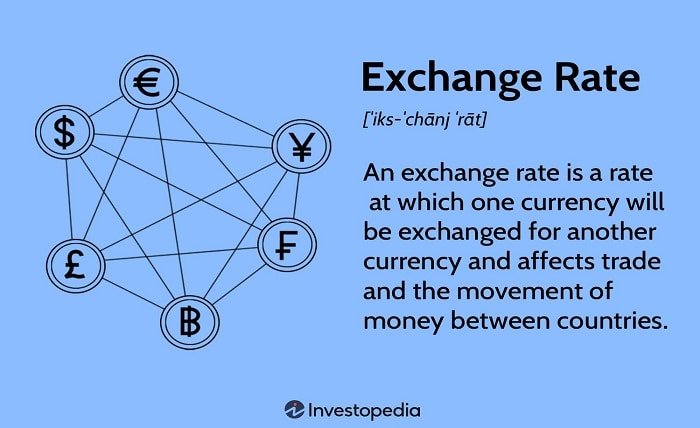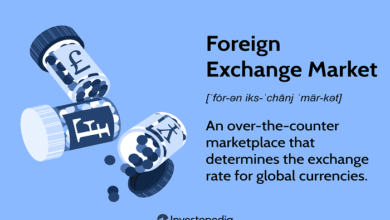What Are the Three Main Factors That Affect Currency Exchange Rates Among Countries?

Introduction
Understanding what are the three main factors that affect currency exchange rates among countries is crucial for anyone involved in international trade, travel, or investment. Currency exchange rates determine how much of one currency can be exchanged for another and are influenced by a variety of economic and political factors. In this comprehensive guide, we will delve into the primary factors affecting currency exchange rates: inflation, interest rates, and political stability.
The Importance of Currency Exchange Rates
Currency exchange rates are essential in global economics. They influence trade balances, capital flows, and overall economic health. Knowing what are the three main factors that affect currency exchange rates among countries can help businesses, investors, and policymakers make informed decisions.
Inflation Rates
One of the main factors that affect currency exchange rates among countries is the inflation rate. Inflation refers to the rate at which the general level of prices for goods and services rises, eroding purchasing power. A country with a lower inflation rate than others will see an appreciation in its currency value. Conversely, higher inflation typically leads to depreciation.
Interest Rates
Interest rates are another critical factor that affects currency exchange rates among countries. Higher interest rates offer lenders in an economy a better return relative to other countries. Therefore, higher interest rates attract foreign capital and cause the exchange rate to rise. However, if the inflation rate in the country is much higher than in others, the effect of higher interest rates may be mitigated.
Political Stability and Economic Performance
Political stability and economic performance are significant factors that affect currency exchange rates among countries. Countries with less risk for political turmoil are more attractive to foreign investors. As a result, a nation with strong, stable government policies will likely see its currency appreciate. Conversely, countries with political instability may see their currencies depreciate as investors seek safer havens.
The Balance of Payments
The balance of payments, including trade balances, significantly influences currency exchange rates among countries. A country with a large current account surplus will generally have a stronger currency, as foreign buyers need to purchase the country’s currency to pay for its goods and services. Conversely, a country with a current account deficit will generally have a weaker currency.
Speculation
Speculation is a factor that can significantly affect currency exchange rates among countries. If investors believe a currency will strengthen in the future, they will buy more of that currency now. This increase in demand can cause the currency to appreciate. Conversely, if they believe a currency will weaken, they will sell off their holdings, causing the currency to depreciate.
Government Debt
Government debt is another critical factor influencing currency exchange rates among countries. Countries with large amounts of public debt are less attractive to foreign investors due to the risk of inflation and default. If investors believe that a country’s debt level is unsustainable, they will be less willing to invest, leading to a depreciation of the currency.
Economic Indicators
Economic indicators such as GDP growth rates, unemployment rates, and manufacturing output can also affect currency exchange rates among countries. Strong economic performance typically attracts foreign investment, leading to currency appreciation. Conversely, poor economic performance can drive investors away, causing currency depreciation.
Exchange Rate Policies
Government policies on exchange rates play a crucial role in determining what are the three main factors that affect currency exchange rates among countries. Some countries use a fixed exchange rate system, where the government pegs the currency’s value to another major currency like the U.S. dollar. Others use a floating exchange rate system, where the currency’s value is determined by market forces.
Trade Relations
Trade relations between countries also impact currency exchange rates. Countries with strong, favorable trade relations tend to have stronger currencies because they can export more goods and services. On the other hand, countries with trade restrictions or tariffs may see their currencies weaken due to decreased demand for their exports.
Conclusion
Understanding what are the three main factors that affect currency exchange rates among countries is vital for navigating the complex world of international finance. Inflation rates, interest rates, and political stability are the primary drivers of currency values. By monitoring these factors, businesses, investors, and policymakers can make more informed decisions and better manage the risks associated with currency fluctuations.
FAQs
- What are the three main factors that affect currency exchange rates among countries?
- The three main factors that affect currency exchange rates among countries are inflation rates, interest rates, and political stability.
- How does inflation impact currency exchange rates?
- Higher inflation typically leads to currency depreciation, while lower inflation can cause a currency to appreciate.
- Why are interest rates important for currency exchange rates?
- Higher interest rates attract foreign capital, leading to currency appreciation, while lower interest rates can result in depreciation.
- How does political stability influence currency exchange rates?
- Political stability attracts foreign investment, leading to currency appreciation, whereas political instability can cause a currency to depreciate.
- What role does government debt play in currency exchange rates?
- High levels of government debt can deter foreign investment, leading to currency depreciation, while low debt levels can make a currency more attractive to investors.





